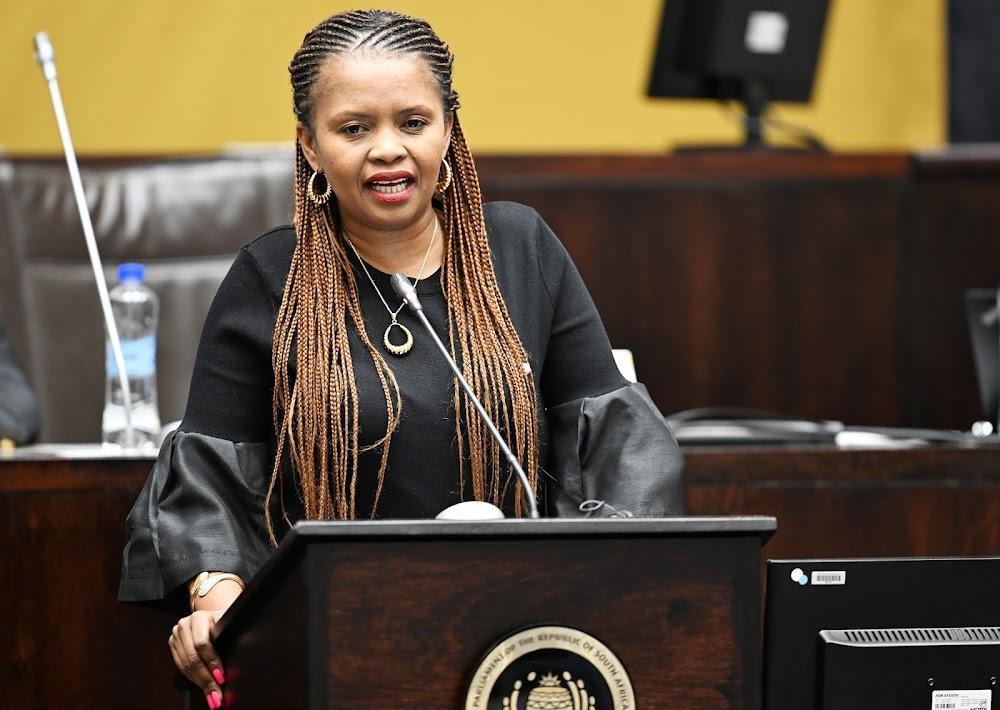Africa-Press – South-Africa. The chair of parliament’s portfolio committee on communications, Sangoni Diko, has demanded that communications minister Solly Malatsi stop dragging his feet on processing legislation that she deems critical to the ICT sector.
Speaking to reporters during a briefing of the economic cluster chairs, she said that since the communications budget vote, the committee had struggled to get the minister to expedite critical legislation to update South Africa’s ICT regulations with the latest sector advancements.
She said Malatsi must make progress with gazetting and tabling an updated version of the Electronic Communications Act (ECA), or the committee would work to introduce a committee bill or a private member’s bill themselves. She said there was no indication in the department’s annual performance plan of an intention to bring the ECA before parliament this year.
“There are several issues in the ECA, which I think, in deliberation, the committee has thought they need to amend. Now, we’ve been raising this issue of legislative reform with the minister for the longest time, since at least we came into this second administration.
“There has been no movement. He stood on this very podium in front of us when we were approving the budget vote and indicated that he would be calling a legislative colloquium where we would all come together to discuss legislation. As has become the norm, months have passed and not much has been done.”
Tensions between the minister and the committee chair intensified in May when Malatsi gazetted a draft policy allowing telecommunications companies to use equity equivalents, instead of being black-owned or broad-based BEE-compliant, to enter the local market, ostensibly to accommodate Elon Musk’s satellite business, Starlink, in the South African market.
She said the ECA needed to provide more clarity on the definition of broadcasting, as the current version does not account for the burgeoning online media platforms where podcasts exist free of the regulatory obligations placed on broadcast programming on traditional television and radio.
“Globally, [the ICT sector] continues to disrupt industries and redefine how societies live and work. South Africa cannot afford to lag in this digital revolution… We need to act with urgency, with agility and determination to ensure that technology benefits all of our people and that nobody is left behind.”
She said there were also government institutions, such as the SABC and the Post Office, that were languishing in a financial crisis and governance paralysis due to the lack of urgency around processing key legislation in their respective spheres.
“In two or three years, the licences of the telcos… will be coming to an end. The licence of the Post Office is coming to an end. There’s no framework that really looks at the extension of those licences, so that is another issue that must be dealt with.”
Regarding Starlink, she said the committee understood that to get a licence in the telecom sector, 30% equity must be allocated to previously disadvantaged groups, which is not in line with the broad-based black economic empowerment (B-BBEE) policy.
“What we are saying to the minister is that he, first, must not be opportunistic and he must ensure that he follows the correct channels. Trade and industry came together with the minerals portfolio committee, and I’m sure that there were legislative amendments that would have taken place there to introduce the BEE codes to the sector, especially around licences.
“Now, that hasn’t happened in our sector. The minister just wants to take a shortcut by saying he is just going to align laws. There’s no such thing as aligning laws. You either change the laws or you seek legal interpretation.
“We are very keen to see how the minister is going to proceed on that matter. If there must be changes to the law, we must have that conversation, and we agree with the telcos wanting regulatory parity, but the question is what is that going to look like and what sort of obligations and licensing regime do you create for the likes of Starlink and so forth?”
She said the legislative cycle in South Africa takes no less than two to three years and that the SABC Bill remained in parliament with no sign of it progressing through the legislative pipeline.
For More News And Analysis About South-Africa Follow Africa-Press






